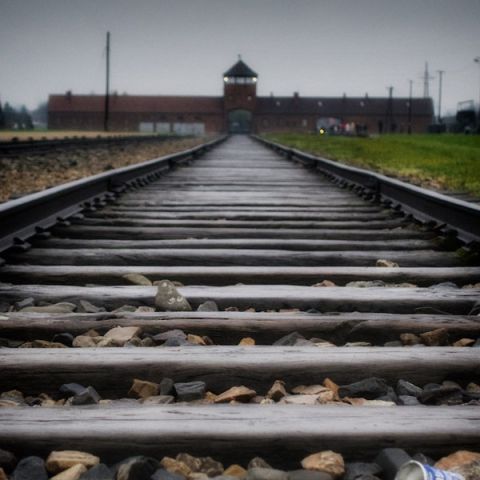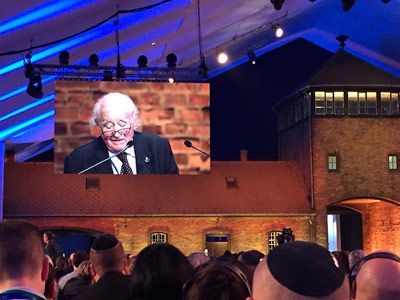
Auschwitz was one of five death camps established by the Nazis in Poland where Jews were taken to be murdered during the so-called “Final Solution,” a euphemism for the their genocide. We know it through the horrific photos of trains filled with Jews, of men being split from women, parents from children, of the uniformed Nazi wagging his finger, and of the brick chimneys billowing smoke. But there is a much more intimate story still to be heard.
